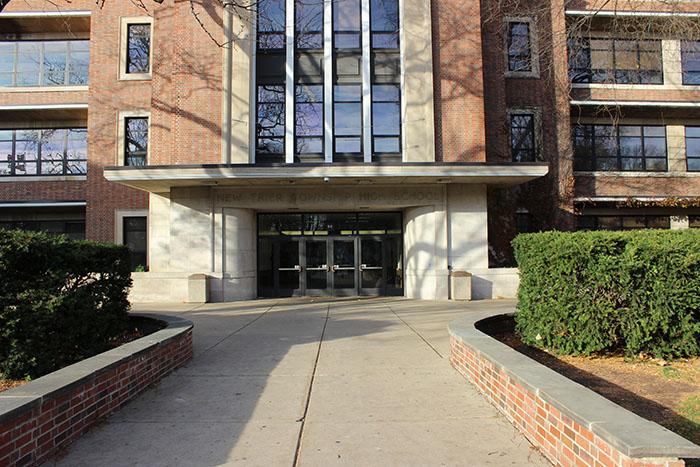It all comes down to safety
To properly and adequately prepare teenagers for the world beyond high school, students should be given more rights in school. It is an unarguable truth that students have little of their guaranteed constitutional rights the second they step through the doors of their school. Is it not the point of high school to ready teens for the real world where the constitution is solidly upheld?
This being said, students in public schools are not completely stripped of their rights. Let me preface my opinion with some legal background information.
The Supreme Court ruled in Board v Barnette in 1943 that students did not have to stand or recite the Pledge of Allegiance against their will.
During the Vietnam War, students wore black arm bands to school to protest and were forced to take them off. In Tinker v Des Moines (1969) the Supreme Court ruled that the students could not be forced to remove the arm bands. These two famous cases set precedents regarding students’ rights.
I applaud these decisions by the court, as both cases established the right to certain personal freedoms. The Supreme Court, in this realm, has recognized the importance of giving future leaders the ability to take action based on their beliefs.
Generally speaking, the Constitution applies equally to everyone, regardless of age, color, race, religion or other factors. However, the rights of free speech, free press, free association, and freedom from unwarranted search and seizure are areas of dispute between students attending school and their administrators.
One of the reasons violations of student’s rights are upheld by the courts is because in loco parentis. This Latin phrase means that while a student is in school, the school can and should act as a parent.
Imagine the strictest parents you know This is the way the school must make decisions to accommodate the views of every parent. This is a means to keeping a safe environment for everyone.
Another reason why we have fewer rights in the school can be understood after looking at the goal of school: to educate. If a student interferes with the educational process, they may be suppressed.
Take another example, New Jersey v TLO (1985). In this case, a teacher discovered a 14-year-old freshman smoking cigarettes in the bathroom. In response to the Assistant Principal’s questioning, the girl denied that she had been smoking and claimed that she did not smoke at all.
The Assistant Vice Principal demanded to see her purse. Upon opening the purse, he found a pack of cigarettes, marijuana, a pipe, plastic bags, money, and an index card containing a list of students who owed the girl money. The New Jersey courts believed there to be a violation of the fourth amendment rights, which prohibits unreasonable searches and seizures and requires any warrant to be judicially sanctioned and supported by probable cause.
However, when the case was sent to the Supreme Court it was ruled that the search was a reasonable one as there was probable cause. The Supreme Court also stated that each state has a duty to provide a safe school environment.
Outside of school we have our rights, yet after subtracting the time we sleep and time we are at school, there is little open time to use them.
With the majority of our time spent in school, we should be able to use our rights. Without the ability to take advantage of these rights during a major part of our lives, we will grow up without the experience of ever using them, making decisions, or having opposing opinions. I don’t want to live in a world of mindless drones working for “the man” and kowtowing to everyone.
So here is where my confusion lies, teachers want to keep us safe while teaching us to also question boundries. We learn all about Martin Luther King and Susan B. Anthony- how their resilience and willingness to stand up for what they believed in at all costs was so honorable and brave. Yet, once seniors are told to put away our tutus on the last day of school, we must obey, unquestioningly.
Schools are stuck in a contradiction. They want to teach students to stand up for what they believe to be right and moral by taking action through being mindful of their rights and using them in an educated way.
However, they cannot preach these lessons very loudly before being stifled by a reality that they must ask students to listen to their authority and the rules set in place. As we complain about silly rules, for example don’t leave the campus in a car during schools hour’s, we must continuously remember the reasoning behind them. Schools are required to keep us safe.
Since the approximate 4000 students at New Trier outnumber the estimated 700 staff, it is out of even more necessity that the rules are stricter and narrower than they are at other schools.
You are only held to any of these rules if you are doing something wrong. Let’s just say if you do break a rule, don’t be stupid and get caught. And if you do get caught, why not bring it to the Supreme Court?






































